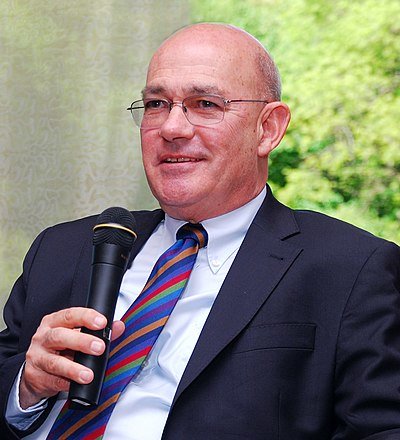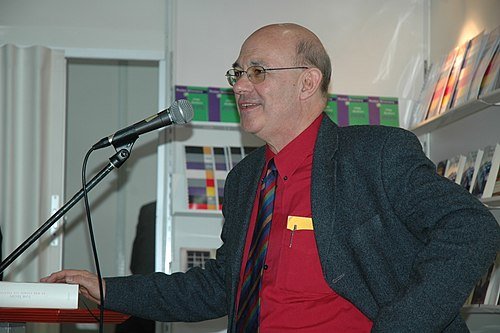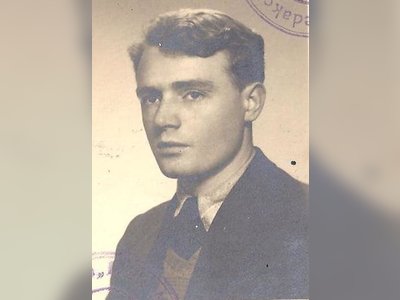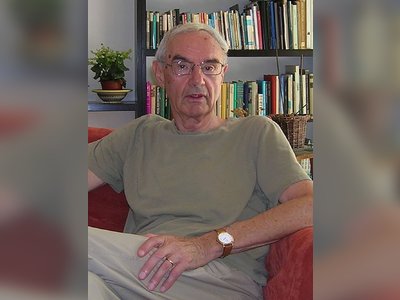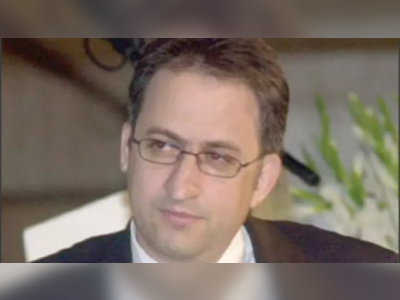מורשת גדולי האומה
בזכותם קיים
beta
Tom Segev: Israeli Journalist and Historian
Tom Segev, born on March 1, 1945, is an Israeli journalist and historian, widely regarded as one of the leading figures among the "New Historians" in Israel. He gained recognition for his weekly column in the newspaper "Haaretz."
Biography
Segev's parents, originally from Germany and graduates of the Dessau school, immigrated to Palestine in 1935, fleeing Nazi persecution due to their communist beliefs. In Palestine, his father, Heinz Segev, who was an architect by profession, worked as a toy manufacturer, while his mother, Ricarda Segev, became a renowned photographer in Jerusalem. Unlike his parents, Ricarda did not convert to Judaism and only learned basic Hebrew.
Tom Segev was born in Jerusalem in 1945 and grew up on Navi'im Street. His first language was German, and he only started learning Hebrew at the age of three. Tragically, his father was killed in 1948 during the War of Independence, leaving his mother to raise him and his older sister, Jutta. Jutta later became a German politician. Tom completed his high school education at a school near the university.
Segev earned his bachelor's degree in history and political science from the Hebrew University of Jerusalem and a doctorate in history from Boston University. He served as a visiting lecturer at Rutgers University, the University of California, Berkeley, and Northeastern University, where he taught a course on the history of the Holocaust.
Before joining the newspaper "Haaretz" in 1979, Segev wrote for "Al Hamishmar," edited and presented "HaYom HaZeh" on "Kol Israel" radio, and worked as a journalist for "Maariv." He also served as the chief of staff for Jerusalem Mayor Teddy Kollek. From 1983 to 1987, he co-edited "Kol HaIr" with Nahum Barnea.
Segev's books, which focus on the history of Israel and the Holocaust, have been widely acclaimed and published in fourteen languages by Keter Publishing and Domino.
Many consider Tom Segev as a representative of the New Historians and a post-Zionist thinker. However, he views post-Zionism not as an ideology but as a situation where Zionist ideology has fulfilled its purpose, and in contemporary Israel, "people are tired of ideology and collectivism and want to live their lives as individuals." Nevertheless, Segev has expressed his belonging to the New Historians group multiple times. His weekly column in Haaretz follows the tradition of the "New History," and he systematically and uniquely addresses problematic aspects of Zionist history. However, in his book "The New Zionists" (2001), he argues that the label "New Historians" is an error.
Segev hosted the TV program "There Were Days" on the Knesset Channel and is the adoptive father of a son from Ethiopia.
Criticism
While Tom Segev has received significant praise in Israel and worldwide, he has also faced substantial criticism from various academic circles. One of the harshest criticisms came from professors Yehuda Bauer and Tobias Frölich in their article "Neither Tom nor Segev," written in response to his book "The Seventh Million: The Israelis and the Holocaust." Similar critiques were raised by Professor Yehoshua Porath regarding the book "One Palestine, Complete." Historian Shlomo Aharonson also raised objections. However, "The New York Times" included his book "The Seventh Million" among the ten best books of 1993.
- תום שגבhe.wikipedia.org
